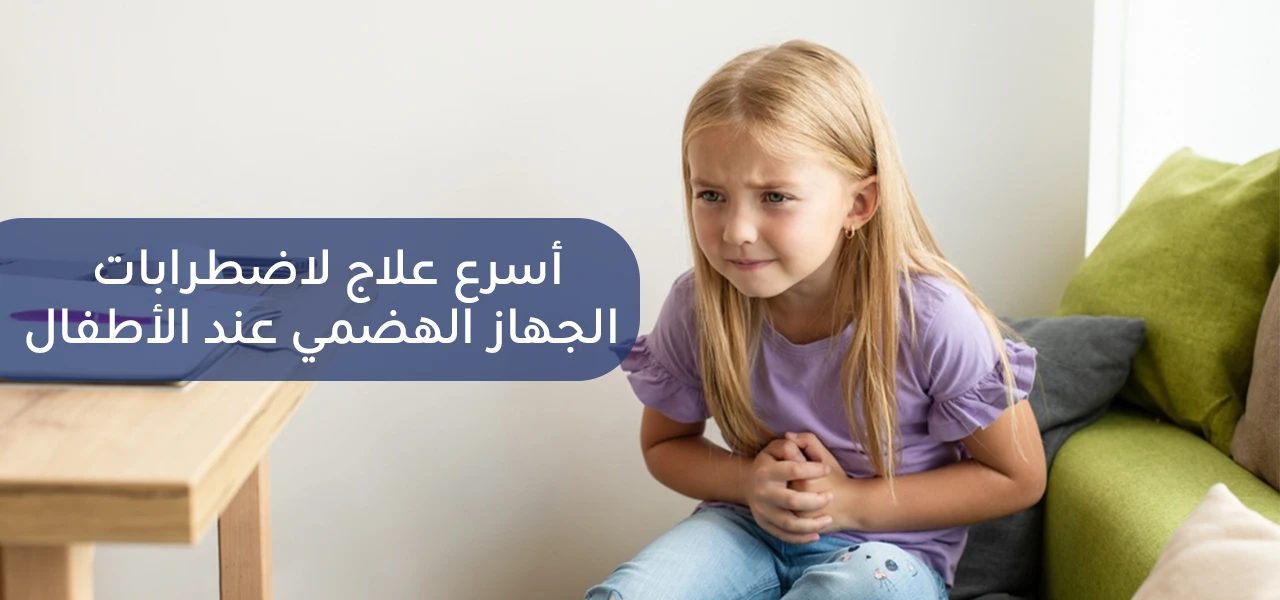Paediatric Gastroentery Disorders and Treatment

A common sign of digestive disorders that may affect their growth. We review the causes and treatments.
Types of digestive disorders in children
Specialized pediatricians work with gastroenterologists hand in hand to treat digestive disorders in children where they can be considered, some of which we mention below:
-
Vomiting
There are many reasons leading to vomiting, the most important of which are various viral infections, in which case the child must be presented to a doctor specialized in the treatment of children, especially in the event of an increase in the child's temperature with vomiting, dehydration, or if the child cannot keep small drops in his stomach of clear fluids.
-
Diarrhea
If the child has diarrhea three times a day, in this case, he has diarrhea disease, which must be well taken care of, as diarrhea comes for many reasons, including viruses or spread bacteria, or the child's sensitivity to certain foods and foods.
Diarrhea can be caused by taking a certain medicine, as competent doctors advise to immediately present the affected child to the competent pediatrician, especially if diarrhea leads to dehydration in the child.
One of the symptoms of diarrhea is that the child consumes more than usual than usual the number of diapers used on a daily basis, and go to the bathroom to urinate more than usual, in addition to the child always feeling dry mouth.
-
Bacteria and viruses
Bacteria and viruses can reach a child’s digestive system in many ways, including eating foods that have not been thoroughly washed, or foods that have not been cooked enough.
All this leads to the appearance of various symptoms in the child, such as severe pain in the abdominal area, and high temperature of the child, in addition to vomiting and diarrhea.
This is in addition to not losing sight of the possibility of children transmitting bacteria and viruses between each other with ease, through permanent play and contact, which is one of the main reasons for the spread of viruses and bacteria among children.
Doctors advise, to prevent the risk of transmission of these viruses and bacteria, to pay attention to washing all types of vegetables and fruits in an adequate way before eating them with children's hands.
In addition to encouraging children to wash their hands before starting to eat food and foods, and not to urge them to share any other individual in the dishes of food that is eaten.
-
Chronic constipation
Constipation can lead to abdominal pain in the child, and constipation may result for several reasons, including eating low-fiber foods and fluids, taking certain medications, the child's refusing to get out because the child feels pain in the anal area during discharge.
In this case, the child should be presented to a doctor specialized in the treatment of children if constipation lasts for a whole week, or the constipation is accompanied by some other symptoms, such as a high temperature of the child, vomiting, when blood comes out with feces, when a change in the color of the stool is observed, or if the child feels severe pain.
-
Coeliac disease
This disease comes with specific symptoms, the most important of which are: abdomen and constipation, vomiting, and diarrhea, as this disease makes the child who develops it grow in a sufficient way, and such symptoms can occur due to eating foods with gluten content.
Gluten is a type of protein that is found in many foods, such as wheat, and when the presence of this disease is suspected in the child, it must be presented immediately to the pediatrician to confirm the correct treatment and diagnosis, so that the doctor requests some of the required changes in the child's diet.
Symptoms of digestive disorders in children
Signs of symptoms of digestive disorders in children can appear, some of which we mention below:
- Stomach pain
- Nauseous feeling
- Intensity of vomiting
- Diarrhea
- Puffiness in the abdomen
- Bleeding in the stomach and digestive system.
- Appetite problems
- The occurrence of constipation
Treatment of digestive disorders in children
A specialist pediatrician or family health care provider can help treat and diagnose various cases of pediatric digestive disorders and can refer the child to a pediatric gastroenterologist.
The specialist may request that the child perform a set of tests that help diagnose the presence of a digestive disorder of the child or not.
These tests include various digestive problems, such as:
- Colonoscopy work
- Perform upper gastrointestinal endoscopy.
- Capsule endoscopy
- Making ultrasound waves of the digestive system.
- Perform flexible sigmoidoscopy.
- Biopsy work
- Perform various blood tests.
- CT scans of the digestive system.
Use of the drug in the treatment of digestive disorders in children
There are many pharmacological solutions recommended by pediatricians specialized in the treatment of digestive disorders in children, such as the following:
Pembe dot gas 30 ml
Pembe Point Gas 30 ml The drug is one of the supplements that work to relieve digestive disorders in children, as this medicine can be used to get rid of most of the stomach and intestinal gases that appear in children.
Advantages of using Pembe Dot Gas 30 ml Characteristics
It contains a natural chamomile plant, as it works to calm the intestines in the child, and thus helps reduce the gases and bloating felt by the affected child. This medicine also contains peppermint oil, which helps reduce the occurrence of convulsions.
Diarin syrup for the treatment of diarrhea in children, 100 ml
Diarin syrup, a 100 ml treatment for diarrhea in children, consists of natural ingredients that help alleviate digestive disorders in children. It contains natural substances that reduce nausea in children.
It can cause persistent abdominal pain, colitis, and other diseases, so you should avoid abdominal pain and digestive pain through proper treatment with Sprite Pharmacy, the best online pharmacy in Kuwait.
